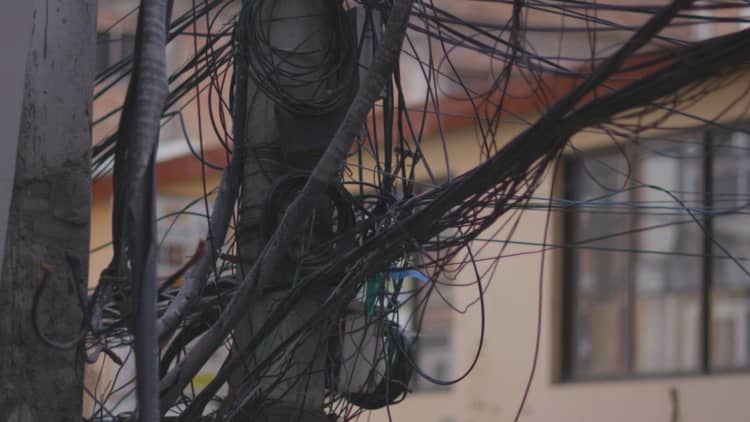
For many people around the world, a reliable supply of electricity remains very hard to come by. In Nepal, already struggling to recover from a devastating earthquake last year, power cuts are a harsh reality of life.
Some schools there are looking to clean energy – specifically the sun – to boost the education of students. One such institution is Malika Higher Secondary School, where solar power is helping to transform the educational experience of young people.
"It used to be very difficult for us to teach children when there was no light," Udaya Bahadur Khatri, headmaster of the school, told CNBC's Sustainable Energy. "We were not able to use visual methods to teach the children, except in the day time," Khatri added.
The installation of solar panels has had a significant impact. "Now we are providing evening classes for our students. Our students are able to operate computers and laptops easily," Khatri said.
Since the earthquake struck last year, killing more than 8,000 people and injuring over 22,300, efforts have been ongoing to rebuild the areas worse affected.
This has proved to be a challenging process, with everything from logistical issues to a fuel crisis hampering efforts. In April, the Disasters Emergency Committee said that the focus was now on "livelihood restoration to enable self-sufficiency and supporting shelter reconstruction."
It is not only in education that solar power is helping to transform lives. Earlier this year, Sustainable Energy looked at the work being done by SunSaluter in India.
There, the non-profit has developed a "solar panel rotator" which follows the sun during daylight hours, boosting efficiency and producing clean drinking water simultaneously.
Back in the field of education and learning, the importance of a reliable electricity supply is deemed to be crucial.
"Education and energy are critical for sustainable development overall," Bahareh Seyedi, from the United Nations Development Programme (UNDP), told Sustainable Energy. The UNDP works in around 170 countries and territories and aims to eradicate poverty and reduce inequality and exclusion.
"The importance of education in expanding opportunities for jobs, for growth, for overall wellbeing is well recognised and obvious."
"But what is not talked about as often is how energy impacts education and why is it so critical to invest in sustainable energy and education for sustainable energy."
Access to electricity enables students to study beyond daylight hours, Seyedi said, and helps broaden opportunities for whole communities.
"Teachers have the means to improve the quality of the teaching by using audio visual equipment or information technology devices like computers and internet," she said.
"There's also other evidence that shows in electrified schools there is a higher attendance rate and better opportunities to retain qualified staff," she added.




